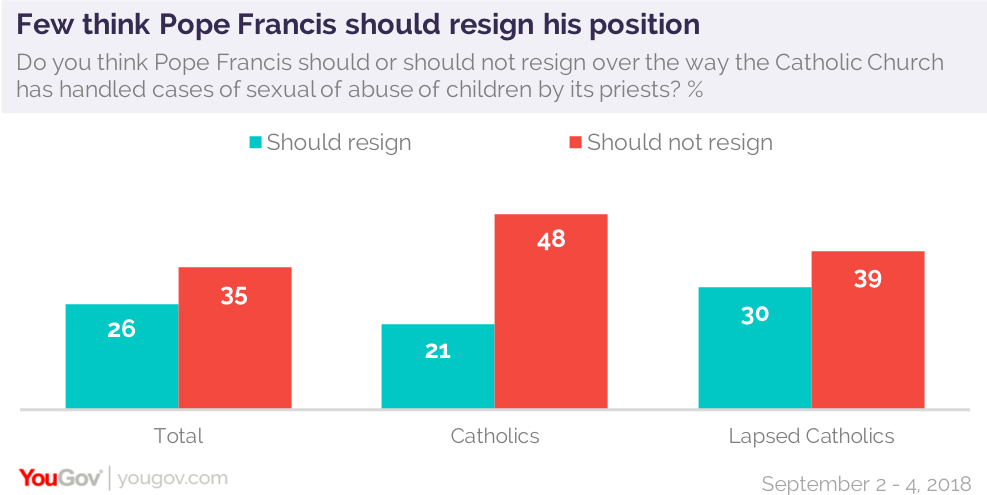Most Americans (54%) have an unfavorable opinion of the Catholic Church
For the Catholic Church, the latest revelations about the cover up of child sexual abuse in the Pittsburgh Diocese underscore the growing problems the Church is facing: the defection of many who were raised as Catholics, the criticism of its response to the scandals, and even the questioning of Pope Francis, a man who had been a popular leader around the world.
The latest Economist/YouGov Poll finds that one in three of those who were raised as Catholics no longer view themselves that way. Among the 25% of Americans who were raised Catholic, one in ten now call themselves Protestants, and even more describe themselves as not affiliated with any religious group.
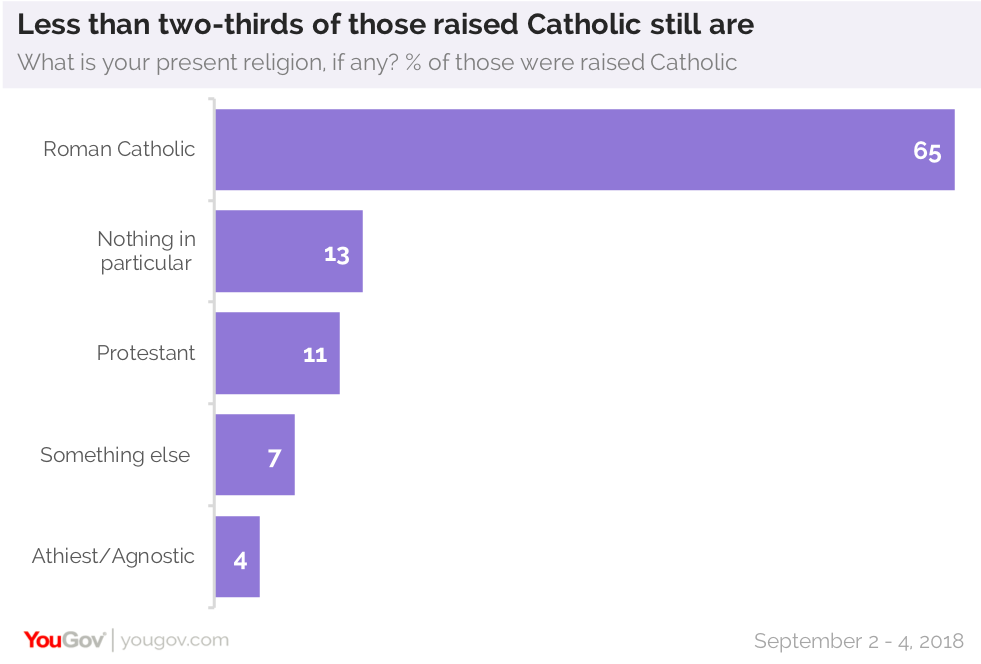
In the poll, only 18% of the adult population today call themselves Catholics. Looking towards the future, the decline in numbers may continue. Just 30% of today’s Catholics with young children say it is “very important” for their children to remain in the faith.
Many Americans see sexual abuse by Catholic clergy as widespread in the past – and one in three think it still is common. Fewer current Catholics believe that – but lapsed Catholics (those raised as Catholics who have left the Church) are more likely to see widespread abuse.
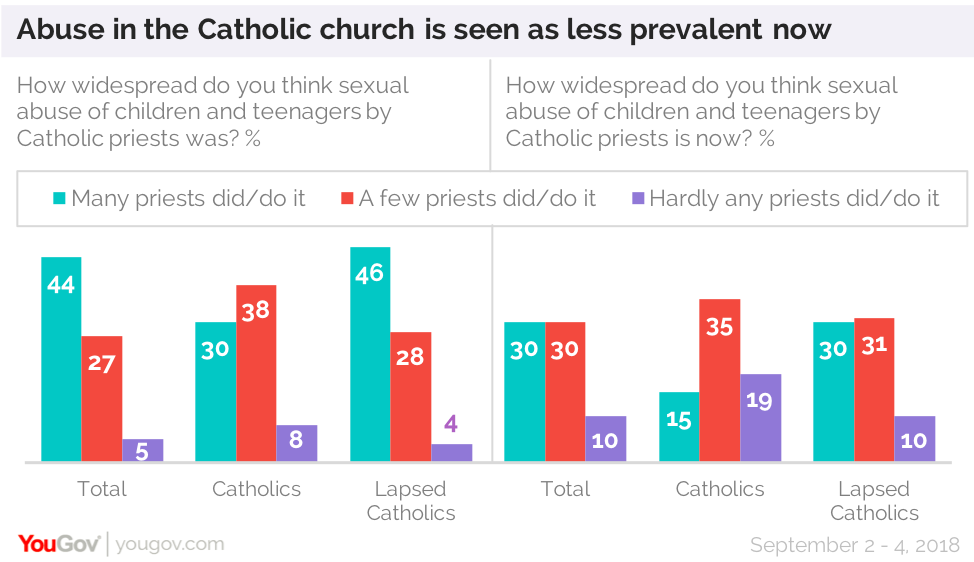
Over a third of the public, as well as 36% of lapsed Catholics, believe abuse as more common in the Catholic Church than it is elsewhere. 17% of current Catholics agree.
Lapsed Catholics are about twice as likely as those in the Church to say they know someone who was abused as a child. While this poll doesn’t directly link leaving the Church to the abuse scandal, 11% of those who have left the faith say they know someone who was a victim of abuse, compared with 6% of those who remain Catholics.
Culpability extends to those who knew about the abuse and covered it up – in other words, the bishops. Sexual abuse of children did not exist in isolation, according to many, Catholic and non-Catholic alike. 43% of Catholics believe that most bishops knew about the abuse. More than half of lapsed Catholics (54%) agree. Six in ten Catholics say that at least half the bishops knew.Just one in four Catholics say the Church is doing a better job handling the abuse scandal today than it did in the past. In that past, the public – Catholic and non-Catholic alike – overwhelmingly believed the Church was mainly trying to cover up abuse rather than prevent it. Just 3% overall and 7% of Catholics say in the past the Church cared more about preventing abuse.
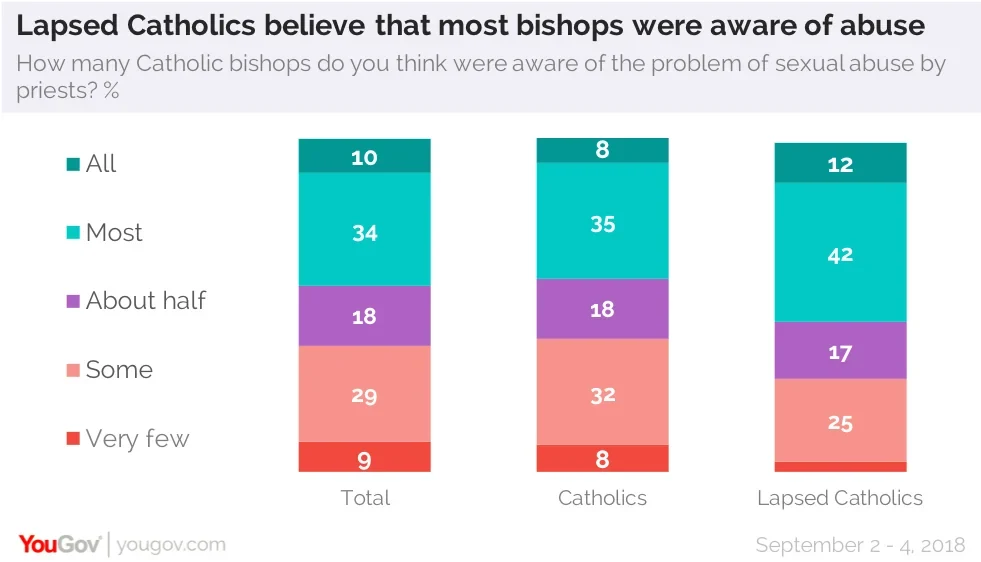
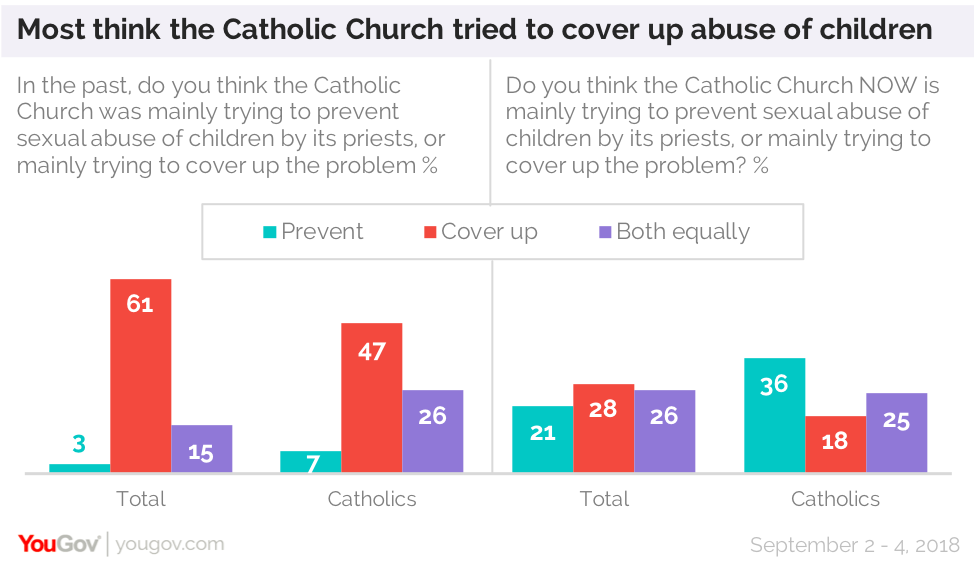
As for today, a third of Catholics say the Church now cares more about abuse prevention. One in five of the total adult population agrees.
Still, less than half of Catholics have even some confidence in the Church to make changes needed to prevent sexual abuse by priests. Seven in ten think the Church needs to do more than just issue a formal apology, like the one made by the Pittsburgh Archdiocese.
For years, Catholics questioned in polls have disagreed with Church policy on priestly celibacy and the ordination of women. This poll is no exception. Catholics overall support married women and women priests. A plurality of those Catholics who describe religion as very important in their lives support married priests, but they narrowly oppose ordaining women.
But the damage to the Church and its leader from the scandal is clear. Americans have favorable views of churches in general, but a much more negative view of the Catholic Church. Even Catholics think more poorly of their own church than they do of churches overall.
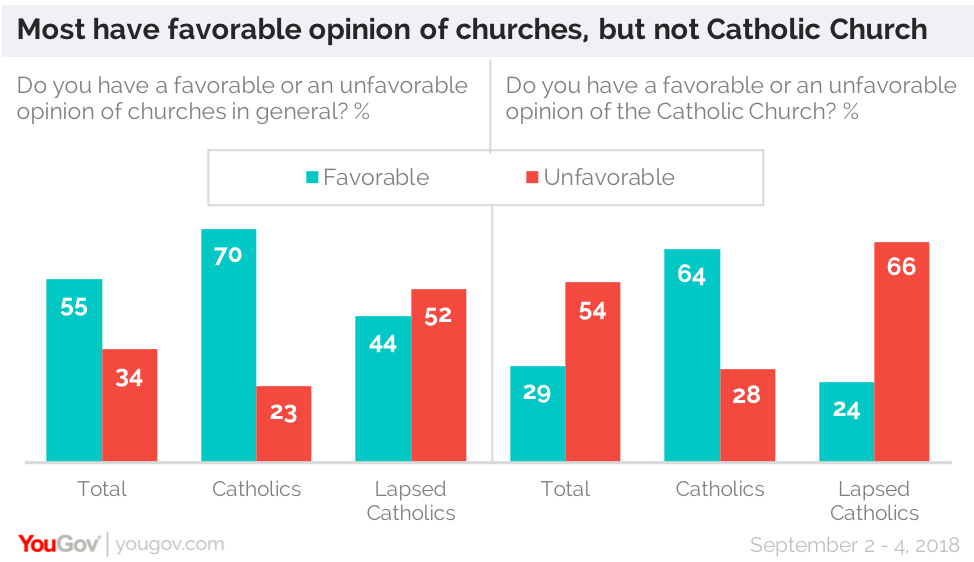
Lapsed Catholics have extremely negative opinions of the Catholic Church, far more negative than the way they look at churches in general.
Pope Francis, too, comes under criticism. Two years ago, Americans by four to one in a CBS News poll had a favorable opinion of the Pontiff. As recently as January, a Pew Research Center poll showed Americans favorable by 63% to 18%. In this poll, opinion is clearly more mixed. Nearly as many Americans overall hold unfavorable as unfavorable opinions of Francis. Catholics, however, are more than twice as likely to be favorable as unfavorable towards him.
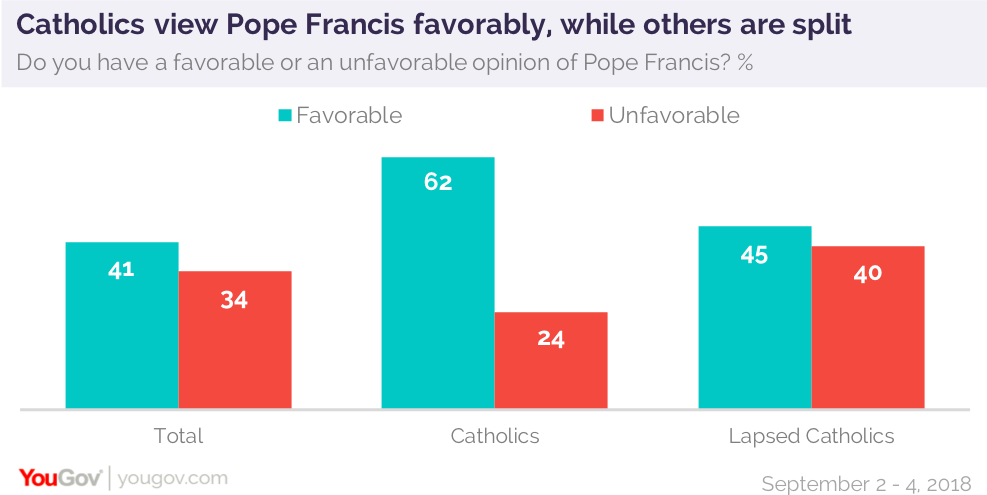
Lapsed Catholics are closely divided in their opinion of the Pontiff.
When asked if the Pope should resign because of the way the Church handled cases of child sexual abuse by priests, Catholics say no by more than two to one. But support for a Papal resignation is somewhat higher among politically conservative Catholics (who may dislike the Pope’s more liberal stand on other issues) as well as former Catholics and those Catholics with little or no confidence that the Church will correct the abuse problem.
